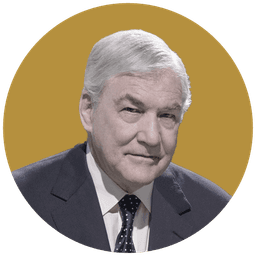A Move to a Hard Currency Standard Is Coming Into Focus as the Best Way To Fix Canada’s Teetering Economy
Could the country — by fixing its currency to a combination of precious metals, oil, basic housing, and food — emerge as the leader in a world economy badly in need of reform?

Canadians have been advised to prepare themselves for economic stagnation for the first half of this year and a reduction in the whole year in per capita net income for Canadians. I find myself resistless against the temptation to inflict upon patient readers yet again my program for a radically different approach to fiscal and monetary management.
Please check your email.
A verification code has been sent to
Didn't get a code? Click to resend.
To continue reading, please select:
Enter your email to read for FREE
Get 1 FREE article
Join the Sun for a PENNY A DAY
$0.01/day for 60 days
Cancel anytime
100% ad free experience
Unlimited article and commenting access
Full annual dues ($120) billed after 60 days

